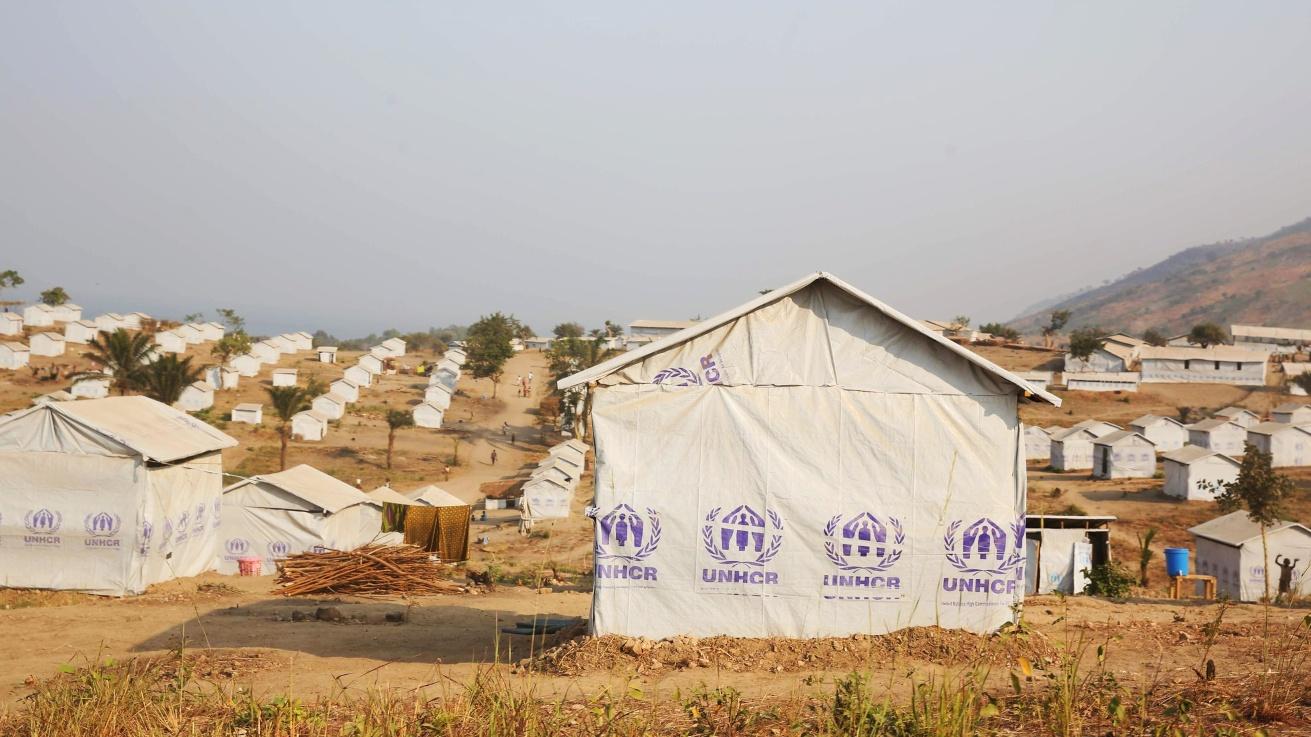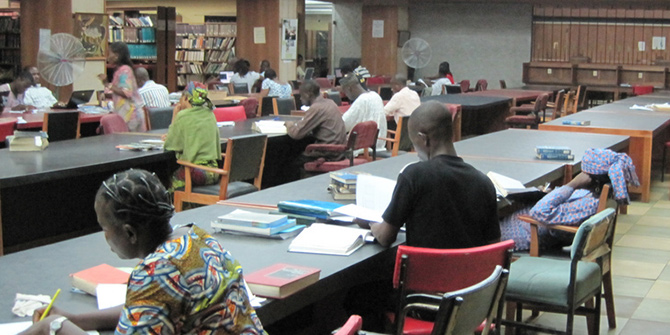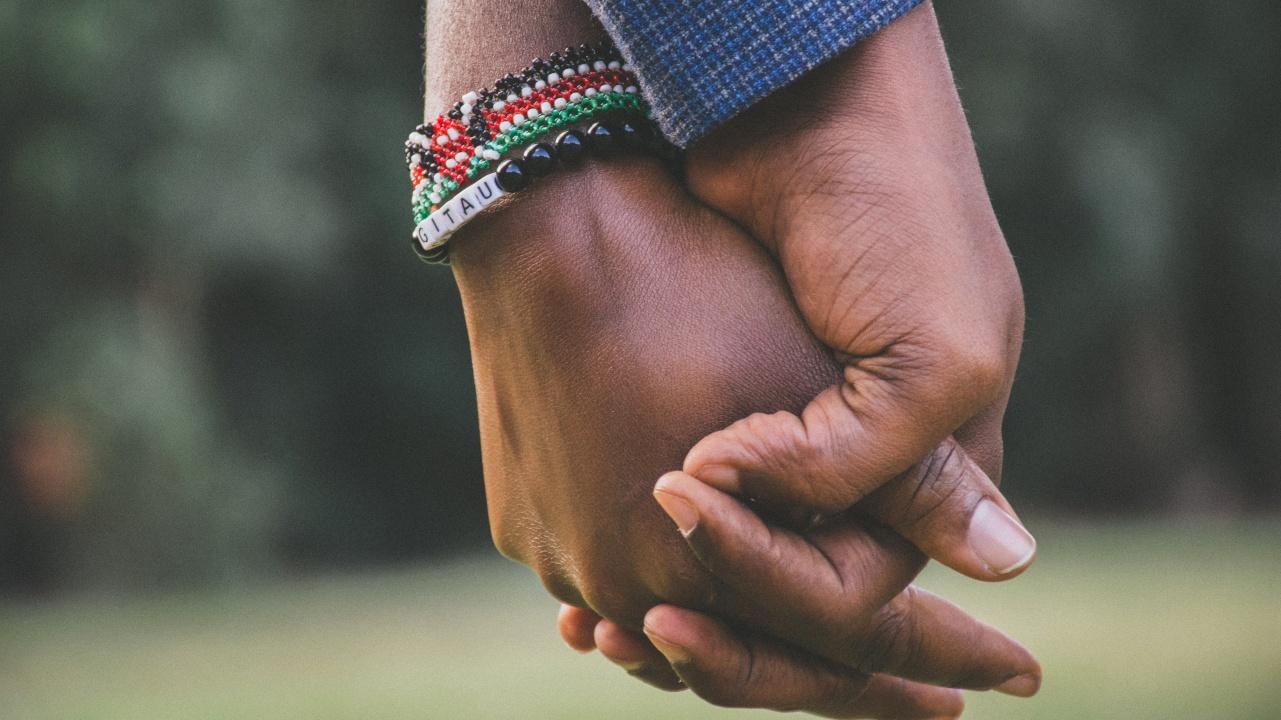Grassroots actors in Kenya must navigate the challenges of working with state and non-state actors to help keep children safe. Eliza Ngutuku and Jacqueline Mutua look at how they exert agency despite a lack of funding and official power.
In the face of reduced government spending on core services, grassroots actors in Kenya work with the state and non-state actors to galvanise communities to address and prevent violence against children. These actors, including individual volunteers from the community and those from community-based organisations, link children with government services, provide guidance and counselling to children and families, promote awareness in the community of child protection, and assist children to get justice. They are not just cogs in a machine, they are active participants in a system which they engage with, enforce, and change with their presence.
For grassroots actors, working with state and non-state actors means working with those who have more power and resources than they do. They regularly encounter a lack of support from the community and local leaders and have to work with little or no funding. There is, however, a need to go beyond seeing these actors as powerless and explore how they engage with these challenges and the meaning they give to their work. Some of the methods they use can be seen as unorthodox, but they help these actors fulfil their core tasks of addressing violence against children.
Who are they?
The grassroots actors working on the prevention of violence include community-based organizations such as self-help, youth, and women groups that work alongside the state and other NGOs. Some individual volunteers work as Child Protection Volunteers, Community Health Volunteers, or paralegals who are seen as community lawyers. Some work full-time, others fit the role around other activities and duties. Some volunteers support the work of NGOs while at the same time supporting their own community-based groups addressing violence against children. Some actors receive funding from other NGOs, but not all. Only a few of the individual volunteers receive a stipend or transport allowances.
Despite the challenges in their work, the people in these roles are motivated by the need to alleviate the suffering of children in their community or what is seen as the ethics of care. Some of the long-serving volunteers see their work as a religious calling and emphasise their pride in being part of social change in their community. The role enables them to interact with senior government officials, and some mention that as a motivating factor.
This has often been framed as ‘elite capture’. But these community groups present this access as a form of upward social mobility, one that enlarges their networks to aid child protection and helps them increase their knowledge of the sector.
Their proximity to the ‘community’s children’ is a key strength. Grassroots actors use place-based strategies like putting potential abusers under watch by hanging out in drinking places that would be inappropriate or impractical for a state or an NGO to do.
Spreading thin to fund their work
To target more funding for their work, some individual actors have multiple roles with various NGOs. One volunteer noted, ‘Sometimes I am a paralegal, other time a peer educator, or a community facilitator depending on the needs of the organisation’. According to the law, a community-based organisation (whose mandate, membership and area of reach is larger), cannot also be registered as a self-help group (a small organisation serving only a few people). But at least one local organisation operates as both a CBO and a self-help group to target multiple sources of state funding. To gain access to funding, some individual actors form their own organisations, whilst still functioning as volunteers with various NGOs. Another group had a policy that required each volunteer to give a percentage of the stipend they receive from NGOs to the group’s activities. While such action helps them to solve their funding challenges, they can also lead to the duplication of services for children which in turn might lead to competition for scarce funding.
For example, volunteers often don’t encourage the use of the National Hotline for reporting violence against children, despite this being more efficient than volunteers reporting to the government or NGOs.
Some paralegals reported that using the hotline would reduce contact with children or make them ‘lose cases’. Since some NGOs pay the grassroots actors based on the number of children they interact with, this could result in a loss of funding. Some NGOs even ‘dropped’ volunteers if they were not interacting with enough children. Others reported being passed on to newer NGOs or what they called ‘being inherited’ if they referred children to the services.
Unorthodox solutions
Some grassroots actors only receive support from the community and other government leaders when accompanied by NGO staff and state officers. The former have resources and are perceived to be more knowledgeable, and the latter have punitive powers. This makes the grassroots actors use strategies that might be seen as unorthodox. To enhance efficiency, some grassroots actors behave like the police or government workers because people fear the police more. For example, they reported shouting to a perpetrator, ‘you are under arrest’ when a child needed immediate relief from an abusive situation. Identifying as a government worker was also a form of countervailing power, used by community health workers when they encountered police who wanted bribes, or who were not supportive. Community health workers are issued with a government identification card, just like the police or chiefs (local government administrators), they reported that when government workers refused to cooperate, they used this card to demand cooperation like ‘fellow government workers’ and as equals in service for children.
Some grassroots actors work as a team since they reckoned it would be more difficult to threaten or bribe a group. To address cases where medical reports of children facing violence ‘disappear’ from police files, the volunteers would in some cases make several copies of the same document and distribute it amongst themselves.
These strategies reveal how grassroots actors manoeuvre to enlarge their space for negotiation, sometimes in ways that may look paradoxical to addressing violence against children.
The challenge is to move beyond whether the actions of these grassroots actors are good or bad. Instead, the focus should be on the NGOs that expect these actors to support them in their work without adequately funding them. This applies to the state and its officials too, who are supposed to support these actors to prevent violence against children but often fail to do so.
This research was part of the Centre for Public Authority and International Development and funded by ESRC grant ES/W00786X/1( 2022-2025).
Photo credit: Markus Spiske on Unsplash






Congratulations Dr Eliza and Dr Jackie for carrying out this research. I believe this outcome will change the perception the community has for these grassroots actors positively. I too hope that both county and National governments will start recognizing these grassroots actors and appreciating their hard work.
Good read
Fantastic job ,Dr Eliza and Dr Jackie this is a great knowledge base for even us young poeople looking forward to venture into research. Am inspired